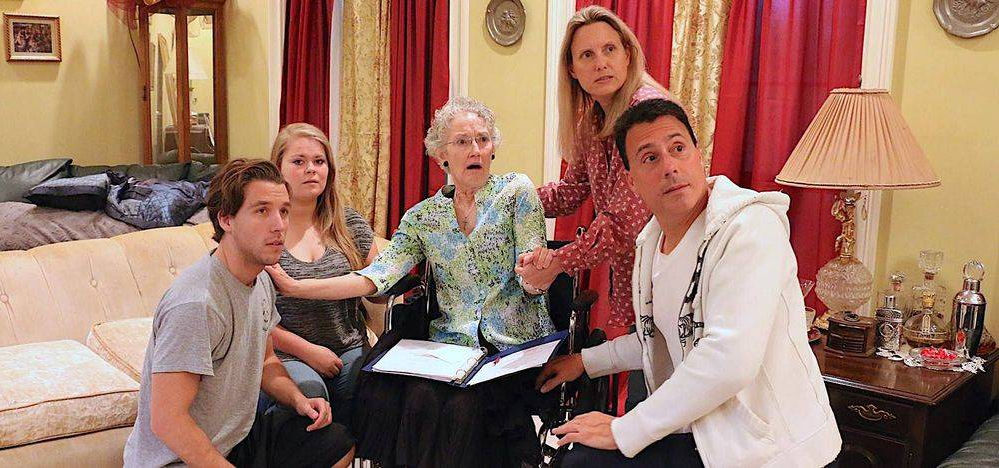top of page



AN INTERVIEW WITH Greg Rabidoux, FILM DIRECTOR
As the film’s director, please introduce yourself and let us know why you decided to become a filmmaker?
I had worked on several shorter, experimental films before, but Stolen Babies of Spain was my first, feature-length documentary film I’ve directed. I have a PH.D in politics and film and I try to devour anything on the “how-to” of making film I can get my hands on.
When I wasn’t making the film, I’ve been fortunate to be in a number of films directed
by some really talented and savvy directors that will no doubt make up the next generation of commercial films one day.
I learned a lot just hanging around movie sets when not doing my scenes.
I’ve always loved film and its power to move people, to stir passion and to draw us all together as one.
I love making documentary films because it allows me to tell real stories about vital issues of our time in a way that hopefully informs and entertains.
What are the films or people that impacts on you and deeply inspired you to become a filmmaker?
On the documentary side, Ken Burns’ epic Civil War series, Amy Berg’s Deliver Us From Evil, Werner Herzog’s Encounters at the End of the World, the classic Leni Riefenstahl’s Triumph of the Will, even Maysles’ Gimme Shelter, all show the power of the camera and its ability to show the extraordinary things humans are capable of, good and evil. They all make me keep wanting to perfect my craft.

Your film "Stolen Babies in Spain" is an award winning documentary film in the "American Golden Picture IFF".
What were some of the challenges you faced in making this film?
Putting together a film crew and then managing all the logistics of traveling from the US and filming on location and living in Spain
for several months and keeping everyone focused and executing our game plan.
It was hard at times to separate being part of a film crew from just being a person who cared about the people we filmed.
Their stories and struggles are at times simply heart-breaking. Also, making sure we invested the time and emotional energy
into building trust with victims we filmed as there is a very real and palpable fear among many of them that
they will suffer retaliation once their stories go public. We have received threats but those we sort of expected
as it’s clear some folks in high places prefer this story simply go away.
What was the most biggest lesson you had to learn?
To always shoot more footage than you think you could ever possibly use and that the editing of the film almost never really ends.
Oh yeah, trust your “inner-compulsive voice” and always bring back-up batteries!
To you, what part of the filmmaking is the hardest part?
Actually, putting the film out there for public consumption. For me, they are like my children and I never think they’ll be
ready for the cruel world out there!
The most important part is distributing the film. What did you do for distributing your film?
We’ve been really focusing on submitting our film to a number of quality and dynamic film festivals like the
"American Golden Picture International Film Festival".
We are hoping that through this exposure we can connect with industry professionals that share our belief that this story of
stolen babies needs a wide audience and will collaborate with us to make this become a reality.

What movie do you like best and why?are your all-time favorite movies?
This is a tough one. I tend to like certain parts or even just scenes from a lot of films, like Citizen Kane, Casablanca, Rashomon,
The Exorcist, The Godfather, Apocalypse Now, The Blade Runner, The Departed, Psycho, Breathless,
A Few Good Men and Scarface all the way to Singin’ in the Rain and the Wizard of Oz. The Devil Wears Prada is like a guilty
pleasure though I want to change the ending! But, if push came to shove, I’d have to say I never get tired of seeing V for Vendetta.
On the documentary side I always learn something every time I watch anything from Ken Burns or Werner Herzog.
If you could work with anyone in the world, who would that person be?
On the acting side it’d be Tom Cruise or Meryl Streep, If I could work closely with any directors it’d be Ridley Scott at any age
or a young Orson Welles.
What keeps you inspired to continue filmmaking?
Knowing that the subjects of our films have trusted us to share their stories with the rest of the world. It’s an awesome
responsibility and honor that keeps us all on our toes and motivated to make the best film possible.
What are your filmmaking goals?
To be fortunate enough to keep discovering stories deserving of being told through film, to gain enough recognition within
the industry so that the canvas we can work with will keep getting bigger not smaller as well as the audience.
For your next project, what sorts of movies would you like to make if you had your choice?
I would want to make another expose type of documentary about stolen babies of Serbia.
They deserve a forum and the chance to discover the truth. Issues like the march to justice in Catalonia
or the protests for freedom in Hong Kong grab me and keep me up at night.
GOOD LUCK Greg

Greg Rabidoux's links:
website:
www.stolenbabiesofspain.com
IMDb Page:
https://www.imdb.com/title/tt11219178/
Facebook page:
https://www.facebook.com/stolenbabiesofspain/
bottom of page



